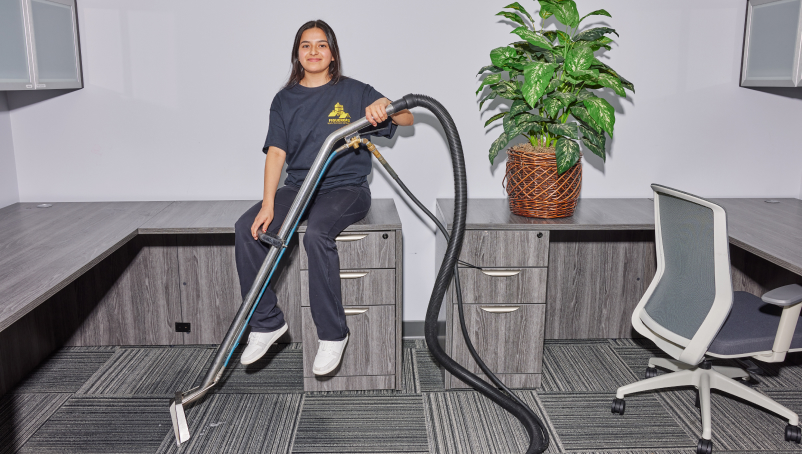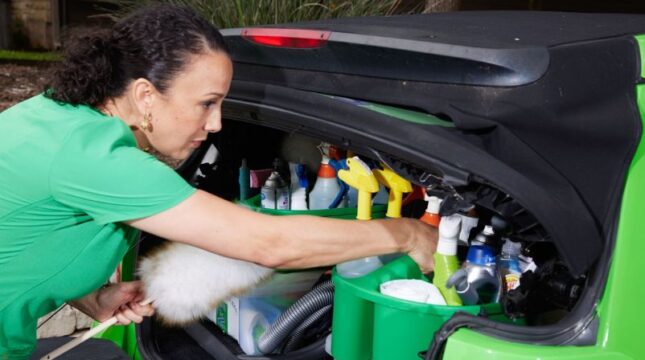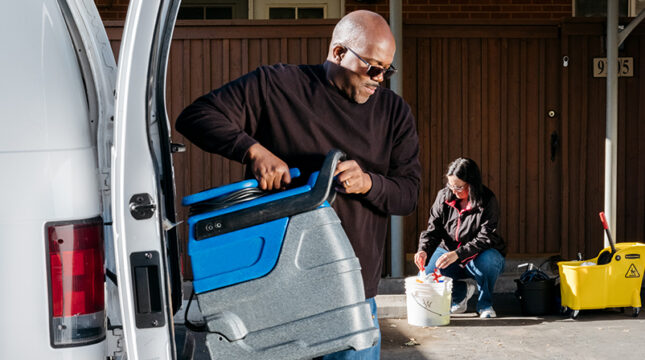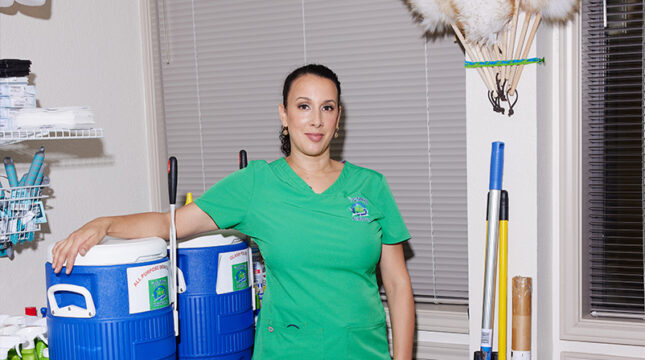5 steps to starting a cleaning business in PA
Before you get to work in the Keystone State, you need to get your cleaning company organized. Take these steps to build your business before you land your first client.
1. Register your business with the state
Before filing your documents to register, you must decide how to set up your residential cleaning or commercial cleaning business. In Pennsylvania, licensing and insurance requirements for a cleaning business vary depending on the type of cleaning services you will offer.
To register:
The Pennsylvania Department of State has a handy dedicated website for getting your business set up. You’ll need to create a user profile here to register online. If you’re not filing online, registration forms are available.
2. File a fictitious business statement
When operating a cleaning business in PA under a name that is not your legal name, you must register a fictitious name. This applies to sole proprietorships, partnerships, corporations and limited liability companies.
To register a fictitious name, you need to file a Registration of Fictitious Name form with the Pennsylvania Department of State and pay a filing fee.
The registration allows you to use a different name for your business than the legal name of your entity. So if your legal name is “Contessa’s Cleaning Inc.” you may want your business sign to read “Contessa’s” or “Contessa’s Cleaning”. You would need to register both these options as a fictitious name.
3. Obtain an Employer Identification Number (EIN)
If you run a business with employees, or if it’s a corporation, partnership or multi-member LLC, you need an EIN for tax requirements.
But if you’re the only one in your business, like in a sole proprietorship or single-member LLC, the IRS doesn’t make you get an EIN. Still, having one can help keep your personal and business finances separate.
Getting an EIN is free. You can get one online or fill out a form called SS-4 and send it to the IRS by fax or mail.
4. Get a business license
There’s no general business license that all Pennsylvania businesses are required to obtain. Instead, you may need specific licenses based on your business’s planned activity.
To make sure you cover all your bases, complete the Business Registration Checklist provided by the Pennsylvania Department of Revenue.
5. Obtain a sales tax permit
In Pennsylvania, residential and commercial building cleaning services are subject to sales tax. So, you will need to obtain a sales tax license to collect and remit sales tax on your cleaning services.
You can obtain the sales tax license by completing an online business tax registration in the Pennsylvania Department of Revenue’s myPATH Pennsylvania Tax Hub system. There is no fee to submit the application.
Insurance requirements for a cleaning business license in PA
Business insurance can help protect you from unforeseen circumstances like slip and fall injuries, damage to a client’s property, employee injuries and business interruptions.
If you’re operating a cleaning business or planning to start one, Pennsylvania business insurance coverage can help protect you, your business investment, your employees and your clients. Business insurance not only shields you from the fallout of unforeseen events, but it makes your business look better prepared, more professional and more competitive.
A business insurance policy is usually composed of several types of insurance working together to meet your needs. These policies are some of the most common for cleaning businesses in your state:
General Liability insurance
General liability coverage in Pennsylvania can help protect against some of the most common business risks and accidents. This liability policy can help shield your business from losses associated with non-employees suffering bodily injury at your business (such as a slip-and-fall injury on a wet floor).
It can also be helpful if you or your employees accidentally cause property damage to someone else’s property — and you’re on the hook to repair or replace it.
Learn more about general liability for cleaning businesses.
Commercial Property insurance
Commercial property coverage can help protect the physical assets you need to do your job, such as a storefront or storage facility, plus equipment and inventory. It can help safeguard your business property against various risks, such as fire or theft.
BOP insurance (Business Owner’s Property)
A business owner’s policy, also called a BOP insurance policy, combines general liability and commercial property insurance coverage into a single, often cost-efficient and convenient package.
A BOP can carry more protection than a single policy. It can help cover damage that you or your employees may inadvertently cause to another person’s property, as well as bodily injury accidents that injure passersby on a slippery floor.
BOP keeps going to help protect your business inventory in the event of vandalism or other covered events.
Workers’ Compensation insurance
In Pennsylvania, most employers are required to carry workers’ comp coverage.
Even if it’s not required for the cleaning industry, it can help cover work-related injuries or illnesses. This policy can help your business cover medical expenses and wage replacement for employees who get ill or suffer an injury on the job.
Learn more about workers’ comp for cleaning businesses.
Tools & Equipment insurance
If all the cleaning equipment and supplies you bought for your work — vacuums, window washers, cleaning products, etc. — were to vanish, would you have the funds to replace them all at once?
If your owned or borrowed equipment gets stolen, lost or damaged, this coverage could help you get you back to work fast and help with replacement or repairs — in your vehicle, in storage or at a job site.
Tools and equipment coverage is an add-on to general liability insurance for contractors and cleaning businesses.
While your business may need more specialized coverage, the above policies can help protect most businesses from everyday risks — especially when you’re just starting.
Different cleaning businesses may require more specialized coverage, so it’s crucial to discuss your unique needs with a licensed, experienced insurance professional.
Local Pennsylvania city and county cleaning business license requirements
City and county governments have their own sets of rules on top of state rules – especially in buzzy metropolises like Philadelphia or Pittsburgh. Be sure to research the permit needs, licensing regulations and insurance requirements in all areas where you plan to operate.
Philadelphia cleaning business license requirements
In Philadelphia, every business, including cleaning services, must get a Business Privilege License from the Philadelphia Department of Revenue. If your cleaning service is in certain commercial areas of the city, you’ll also need a Commercial Activity License.
Pittsburgh cleaning business license requirements
If your Pittsburgh cleaning business needs to use chemicals or hazardous materials, you may need to obtain a permit from the Allegheny County Health Department. This permit ensures that your business complies with health and safety regulations. Cleaning businesses are also subject to the Business Income & Receipts Tax.





